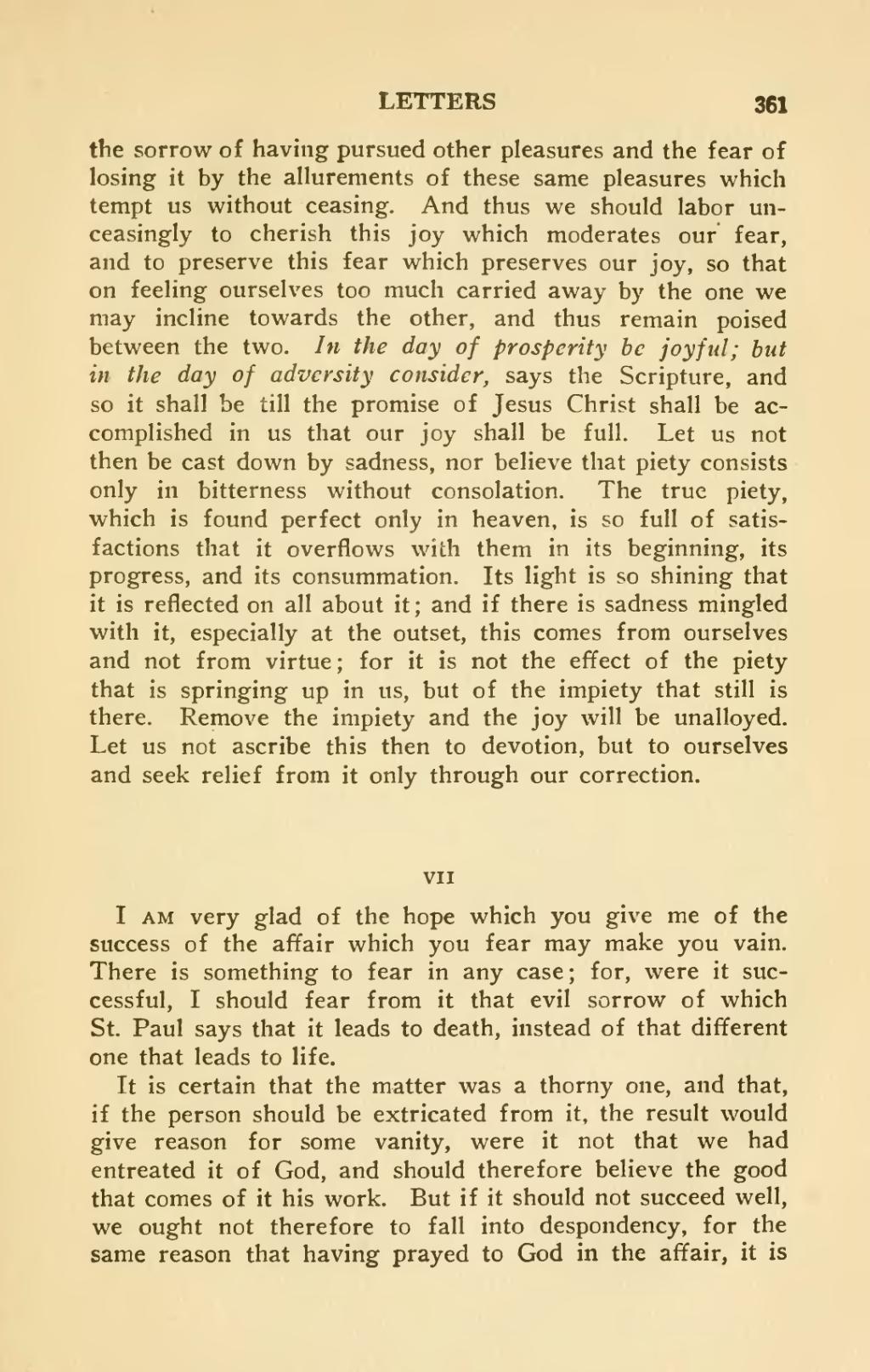the sorrow of having pursued other pleasures and the fear of losing it by the allurements of these same pleasures which tempt us without ceasing. And thus we should labor unceasingly to cherish this joy which moderates our fear, and to preserve this fear which preserves our joy, so that on feeling ourselves too much carried away by the one we may incline towards the other, and thus remain poised between the two. In the day of prosperity he joyful; but in the day of adversity consider, says the Scripture, and so it shall be till the promise of Jesus Christ shall be accomplished in us that our joy shall be full. Let us not then be cast down by sadness, nor believe that piety consists only in bitterness without consolation. The true piety, which is found perfect only in heaven, is so full of satisfactions that it overflows with them in its beginning, its progress, and its consummation. Its light is so shining that it is reflected on all about it; and if there is sadness mingled with it, especially at the outset, this comes from ourselves and not from virtue; for it is not the effect of the piety that is springing up in us, but of the impiety that still is there. Remove the impiety and the joy will be unalloyed. Let us not ascribe this then to devotion, but to ourselves and seek relief from it only through our correction.
vii
I am very glad of the hope which you give me of the success of the affair which you fear may make you vain. There is something to fear in any case; for, were it successful, I should fear from it that evil sorrow of which St. Paul says that it leads to death, instead of that different one that leads to life.
It is certain that the matter was a thorny one, and that, if the person should be extricated from it, the result would give reason for some vanity, were it not that we had entreated it of God, and should therefore believe the good that comes of it his work. But if it should not succeed well, we ought not therefore to fall into despondency, for the same reason that having prayed to God in the affair, it is
